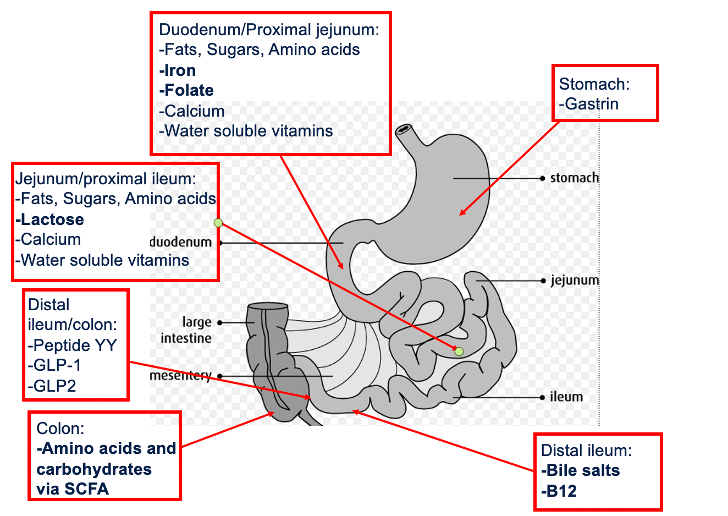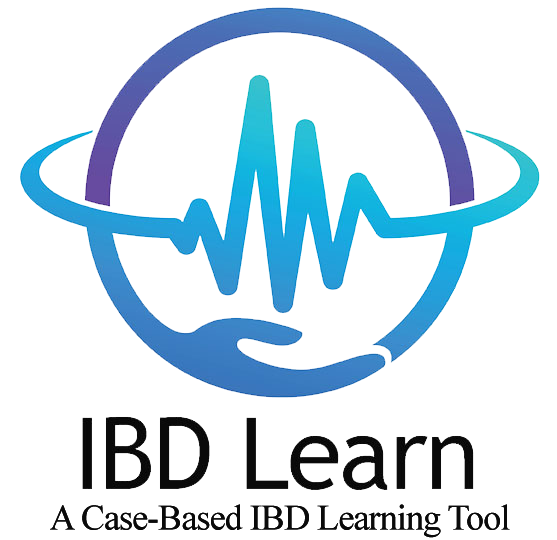Discussion Break Part 1
Understanding intestinal physiology will help you understand the consequences of SBS particularly as they relate to how different types of anatomy can lead to different outcomes. Review the diagram below to understand where in the bowel different nutrients and hormones are produced:

Bowel adaptation is the process by which the bowel adapts to a shortened length. After a small bowel resection, patients typically progress through 3 stages of bowel adaptation.
- Acute stage: Typically lasts 3-4 weeks and is characterized by gastric hypersecretion and hypergastrinemia due to loss of inhibitory hormones from the colon and distal ileum. This leads to high intestinal losses and metabolic derangements.
- Adaptation stage: May last 1-2 years, and is the critical stage where the possibility to reverse intestinal failure exists. Some patients can achieve independence from TPN 5 years out. This stage is characterized by functional (slowing intestinal transit and upregulation of epithelial transport proteins) and anatomic changes (crypt cell hyperplasia, increased villus height, and increased crypt depth). The adaptation process can be facilitated by adaptive hyperphagia – increasing oral caloric intake to > 1.5 times over resting expenditure – because nutrients in the gut and gut hormones increase villus height and width. Reversibility occurs in approximately 50% of adults, and is more likely in patients who have longer remaining healthy bowel (>115 cm if end-jejunostomy, > 60cm if jejunocolic anastomosis, and > 35cm if ileum and colon are in continuity), achieve adaptive hyperphagia, minimize fluid and electrolyte losses, and are followed in a specialized intestinal rehabilitation center. The adaptation process is impaired or absent in the jejunum; thus, patients with an end jejunostomy are the most likely to be dependent on PS long term and have the poorest prognosis. Those with ileum and colon in continuity are most likely to undergo reversal due to the ability of the ileum and colon to adapt – the colon can increase fluid absorption to up to 6L per day and energy absorption to up to 1000kcal per day through production of short chain fatty acids by colon microbiota. The inhibitory hormones produced by the ileum and colon (peptide YY, GLP-1, GLP-2) slow gastric emptying and intestinal transit time.
- Maintenance stage: This stage is marked by the need for long term nutrition management including special kinds of diet, enteral feedings, supplementation, and the need for long term PS if adaptation is inadequate, or eventually intestinal transplant.
